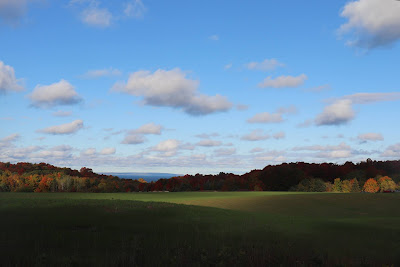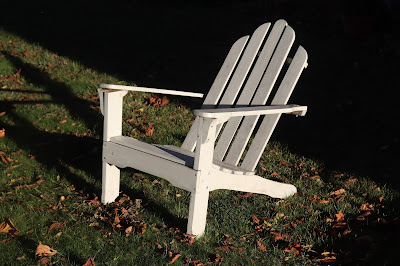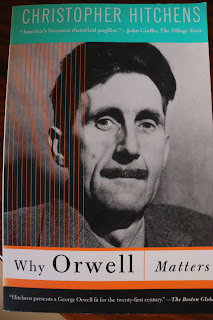 |
| Friends of the heart |
Labor Day is past, but for locals who work all summer, it has only just arrived, and I started the season with Sunday and Monday (September 8 & 9) spent mostly outdoors, under alternate cloudy skies and sunshine, when Sunny and I hosted our hiking buddies from Arizona, who now live in southeastern Michigan. The four of us picked up right where we left off with our last visit.
Auntie Therese is Sunny Juliet’s second mom and young husky Yogi SJ’s best friend. Wrestling in the yard, chasing tossed balls, walking on the beach, wading in Lake Michigan, or just lying down near each other, Sunny and Yogi reunited were in seventh heaven. We left them alone in the house for a couple of hours (first time ever!) and returned to find everything exactly as we’d left it. Happy dogs, happy dog moms!
 |
| Lunch without dogs, can you believe it? |
Then Tuesday it was back to work for me, refreshed and relaxed, bookstore door open to balmy September air. The giant book purchase and move, all seven or so trips with car loaded down with heavy boxes, was finished before our friends’ visit, so I was able to start my slower season without the sword of Damocles hanging over my head.
Of course, besides integrating as many as possible of the “new” additions into my preexisting collection, I squirrel away a book here and there for home reading this fall and winter, awaiting a future time when shelf space opens up on Waukazoo Street. One book I took home expecting something very different was an exciting surprise. The cover didn’t look like much, the dust jacket was missing, and the title didn’t tell me anything at all, but a little voice whispered in my ear, and home with me it went.
 |
| Faint pine cone only clue.... |
How wonderful! Driftwood Valley, far from being the Western novel its title and brown cloth-covered boards seemed to indicate, turned out to be – well, a reissue of the book in 1999 by Oregon State University Press clearly informed potential readers what to expect with a subtitle: A Woman Naturalist in the Northern Wilderness.
The author, Theodora C. Stanwell-Fletcher, and her husband, Jack, entered the wilds of northern British Columbia in 1937 and lived for a year and a half on an otherwise uninhabited lake (after building a log cabin) hundreds of miles from towns and roads, in country noted on maps only as “unexplored” and “unsurveyed.” Their nearest neighbors were Indian trappers; their work was “collecting” (she generally wrote of “collecting” and avoided calling “killing” by that name) animals to ship skins and skulls to an American museum. They returned in 1941 for another couple of seasons before world war intervened.
Prior to their marriage, Theodora Stanwell-Fletcher had accompanied her naturalist father on many of his travels and earned her doctorate in animal ecology from Cornell in 1936, while her husband, John Stanwell-Fletcher, had experience in the Arctic. Their modes of travel including snowshoes, canoe, pack horses, and pack dogs, Teddy and Jack traveled and hiked by themselves at times, other times with Indian guides. They camped outdoors in temperatures as low as 40 degrees below zero, when managing to make a fire meant the difference between life and death, as did succeeding in killing a few grouse – better yet, a moose -- for meat to sustain them on the trail. Following the text at the end of the book are lengthy lists of plants and animals the Stanwell-Fletchers collected in the wilds of British Columbia. The lists alone, with genus and species names, is impressive. Four varieties of horsetail alone!
 |
| Only the first page of the lists -- |
Driftwood Valley, I learn online, was Wendell Berry’s favorite book during a period of his boyhood in Kentucky, and it's no wonder. Wilderness adventure! I reached the final page on Tuesday morning before breakfast with my company and a long walk with our dogs, drinking in the beauty of Michigan at the same time as we reminisced about our hikes with these same dogs in the mountains of southeastern Arizona. My Michigan country life is tame and domestic compared to northern British Columbia in the 1930s and ’40s or even Cochise County ghost town winters, but I am happy to live where I live. It's a very good place!
 |
| Happy dogs off-leash in the yard. |
 |
| Tomatoes seen behind non blooming (so far) morning glory vine |
Tomatoes are ripening at last in my garden, and jalapeno peppers have formed nicely. Okra was a total bust, even though started early from seed, and my friend said hers in southeast Michigan didn’t do anything, either, though she’d had success in warmer Arizona summers, but Japanese anemones have bloomed at last (they need a tomato cage support to keep from falling over) ...
... and the brilliance of velvety scarlet snapdragons rewards my decision to introduce a few annuals in pots among the perennials. Only one chrysanthemum blossom so far, and that’s fine, because ’mums need to wait their turn, and it is not their turn yet. Plaintively, however, I cry out, “Where are my purple coneflowers?” Little grey-headed coneflowers in the meadow have been prolific again this year, and asters are coming along nicely, but not a sign of the purple coneflowers do I see.
Wednesday:
I began writing this post on Tuesday before remembering the evening’s scheduled presidential debate. I had no intention of watching (no TV) or streaming (my watching would not affect the outcome), and I didn’t even want to get into the frequent Facebook checking with friends who would be watching and commenting, because Wednesday morning, I assured myself, would be soon enough to hear what happened. Meanwhile, having wrapped up the story of the Stanwell-Fletchers in British Columbia, I chose for Tuesday evening’s bedtime escape reading a John Dunning murder mystery, Booked to Die, something I read long enough ago that I didn’t remember anything about the plot, only that the used and rare book business played a prominent part in the story.
Denver homicide detective Cliff Janeway, a compulsive book collector outside of work hours, finds in the murder of a book scout all the earmarks of the same murderer who has eluded him multiple times. By the middle of the book, Janeway has gone beyond the law to punish the murderer, turned in his badge, and is preparing to open his own shop on Denver’s Book Row.
…Bobby [the book scout] had come to Madison Street alone. … He had insisted on loading the books himself, which was fine with the two heirs, who had no intention of helping, anyway. Bobby had brought hundreds of cardboard boxes and had spent all night packing and loading the books. … [He] loaded the last of the books as dawn broke in the east.
- John Dunning, Booked to Die
The paragraph quoted speaks not of the romance of rare books but of the physical reality of a big book “deal,” the one where you get a good price because, rather than being able to cherry-pick a collection, you agree to take everything. This is the part of a bookseller’s life that does not involve “thinking outside the box” but thinking constantly, obsessively, about boxes: Too small, and they won’t hold enough books; too large, and they’re too heavy to lift. They need to be sturdy. Cartons from the grocery store that held jugs of water or bottles of wine are a good size and appropriately sturdy, but storage boxes for legal files have handholds and lids so are more readily stackable.
 |
| Object of bookseller obsession |
 |
| Too many when you don't need them, too few when you do. |
Yes, it’s mundane, but the mundane is often a crucial consideration in any endeavor, and it cuts a lot of ice in bookselling. As a colleague likes to say, “You only get one back.” A good sturdy handcart with tires that won’t go flat is also worth its weight in gold. So it is that the concerns of Janeway’s murdered book scout resonate with my experience, as does advice Janeway’s new colleagues give him.
People often say, “advice is cheap,” because people give it for free usually when you don’t ask for it. Over the years, I’ve learned to smile when people who have never owned or managed a bookstore or any other kind of business tell me what I “should” be doing. Once, though – and I’ve never forgotten it – a seasoned bookseller turned around in my doorway as he was leaving and said, “A word of advice --.” I smiled, and he said, “Good shoes.” That’s all he said. Years later he reappeared in Northport and said, “You probably don’t remember me.” I said, “Yes, I do. ‘Good shoes’! It was the best advice anyone’s ever given me!” Good shoes and a well-cushioned mat behind my desk are my recipe for extending the health of my feet and back, and the shoes also go well with dog walks and agility practice.
Back to Tuesday --. As I say, I figured my watching or not watching the debate wouldn’t change the outcome and that I’d hear all about it the next day. Then Wednesday morning I woke to realize that it was once again 9/11, that infamous date on which our country was attacked. No rush, then, I thought, to post to my blog. What with the debate the night before and the sad anniversary come around again, who could possibly care about the life of one little small-town bookseller, even if she also has a dog whose online face makes strangers smile?
 |
| Sunny says, "I'm the cute one." |
So now it’s Thursday, and here’s my post for the week, with bits from my reading, my business, and my life with friends and dog, here on a little northern Michigan peninsula, now all-too-thoroughly discovered but still quite beautiful and with protected public shoreline for us all to share. We are so lucky!























